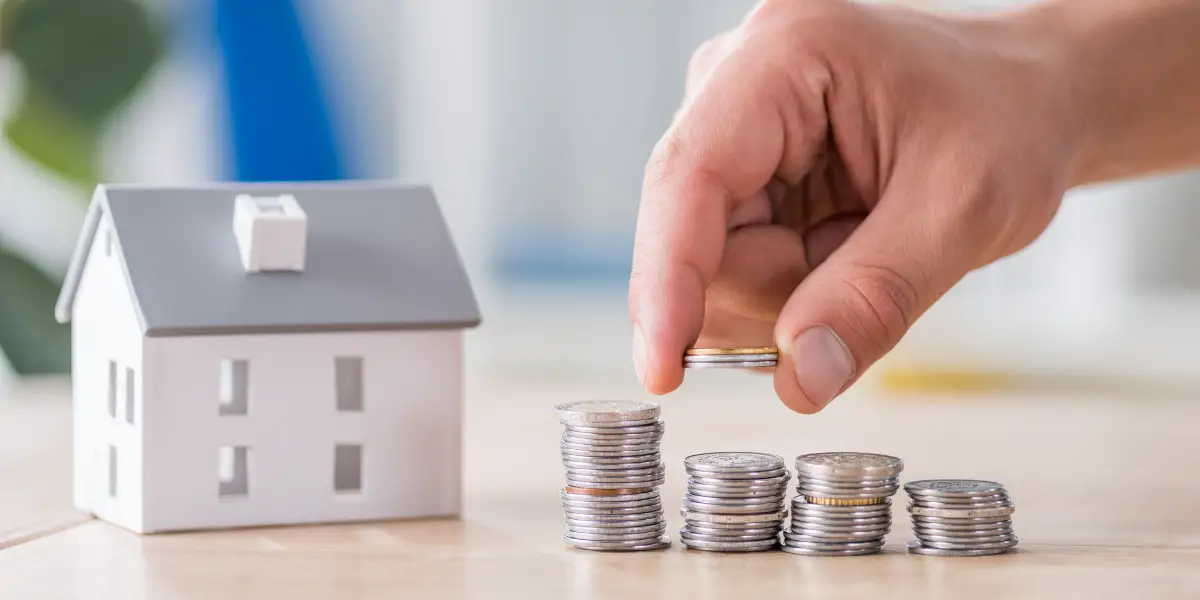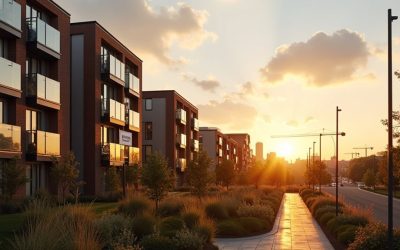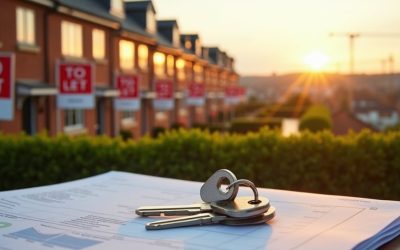Purchasing a home of any type is a big decision. Many people go down the traditional road of purchasing a house, but many other options are on the table, including purchasing a flat instead.
Even though flats are often rented rather than purchased, there are many advantages to buying one – even over a house. Flats are typically cheaper to purchase in the long run, have the potential to function as a good rental property in the future, and have less upkeep associated with them.
While you can have some of the same benefits by renting, in the end, it’s significantly cheaper to buy a flat outright if you’re looking to live in a unit like this. Rental costs increase quickly and make other people rich rather than benefit you. Read on to learn more about purchasing a flat.
Buying a Flat vs. a house
Your first residency purchase requires a lot of forethought. You want to enjoy living there. You want to ensure it’s affordable and has potential for a future project, should you decide you no longer want to live in it.
There are other considerations as well – how much maintenance the property requires, what fees are involved, whether or not it’s a good place to raise a family, and what restrictions are in place all play a major role in the purchase decision.
Flats have quite a few advantages as long-term living options. While many people will still prefer a house, there’s much to consider before deciding which to go with.
With that in mind, let’s take a look at the advantages and disadvantages of both.

Advantages of Buying a Flat
As mentioned, there are plenty of advantages to buying a flat. Some of the major advantages include the following:
- Cheaper: In general, flats are significantly cheaper than traditional homes. This is a major advantage for someone who is working with limited funds.
- Less Maintenance: Flats require much less maintenance than houses.
- Higher Security Measures: Overall, flats have much better security than houses.
Because we are specifically looking at whether it’s bad to buy a flat, let’s look at each one in a little more depth.
Flats Are Cheaper
One of the biggest advantages of flats over more traditional houses is the price. Whether renting or purchasing, living in a flat is significantly cheaper than living in a house.
The average cost of a flat in the UK is around 300,000 pounds ($361,650) for a two-bedroom in a central city. Flats on the outskirts or in more rural areas are about half this price.
In contrast, the average price of a detached house is 500,000 pounds ($602,750).
This is one of the biggest reasons so many purchase flats as investment properties. However, flats are also significantly cheaper for permanent living.
Flats Require Less Maintenance
In general, flats require significantly less maintenance than houses. Most major repairs are taken care of by the flat’s management.
In addition, the flat’s management takes care of things like garden work, general building maintenance, and more.
This can take a lot of stress off of you, especially if you’re living there full-time.
However, one thing to consider is that because flats are individually owned, you, as an owner, are responsible for anything that goes wrong within your unit – barring major issues affecting multiple flats.
Flats Have Higher Security Measures
The majority of flats are significantly safer than personal homes. If the flat is situated within a City, Police are typically more active around these homes, and more people surround them.
In general, flats are much less likely to be the victim of a robbery or other attack than a house.
Disadvantages of Buying a Flat
Though purchasing a flat has quite a few benefits, there are some drawbacks. Let’s look at some of the biggest disadvantages of a flat.
- Leasehold Properties: Flats generally are leasehold properties rather than freehold properties. You won’t own anything but the flat itself. While this isn’t a big deal when renting, it can present some challenges if you purchase the flat for long-term use. The freeholder has a lot of rights and can prevent you from making changes to the flat or could stop you renting it out. You need to ask their permission, so this is a lot more restrictive than owning the freehold of your property.
- Less Privacy: Flats offer significantly less privacy than traditional homes. The walls are often thin, and the proximity to others can be quite disruptive over time.
- More Restrictions: One other disadvantage of flats is that they typically have more restrictions than private homes. When you purchase a private home, you are the sole owner. You usually have the rights to the house and the surrounding land. On the other hand, when you purchase a flat, you only have the rights to the flat. There’s nothing you can do with the surrounding land or the building.

Advantages of Buying a House
Now that we’ve covered the advantages of investing in a flat, let’s talk about the benefits you’ll also receive if you choose to buy a house instead. Because while flats have some great advantages, there are some things that a house offers that can’t be beaten.
Some of the biggest advantages of choosing a house include the following:
- Flexibility & Lack of Restrictions: The purchase of a house allows you to be flexible with your home. You can typically decorate inside and outside your home however you see fit, remodel as necessary, and host most events on the property without encountering objections.
- More Privacy: Houses provide significantly more privacy than flats. The home is separated from others, and you are free to go about your life in your home without worry that someone will hear everything you do through the walls or peek through your windows.
- Increase in Value Over Time: While flats also increase in value to some degree, the value of a house increases significantly more. One of the reasons for better house appreciation is that they are typically situated in better locations than flats.
Disadvantages of Buying a House
While purchasing a house comes with some advantages, it also comes with disadvantages.
Let’s look at a few of these.
- Excessive Responsibilities: One of the biggest downsides to purchasing a house is the responsibility that falls on you as the homeowner. You are responsible for all maintenance costs and repairs and your mortgage and utilities.
- Higher Initial Costs: Houses have higher initial costs than purchasing a flat. As we discussed, they are more expensive in overall costs. In addition, they typically have more fees associated with them.
- Higher Property Taxes: Houses typically have higher property taxes than flats. This can add up quickly as you are paying yearly.
Final Thoughts
Buying a flat has many advantages, but it’s not for everyone. You will sacrifice your privacy, flexibility in what you can do with the property, and some appreciation value for a lower price upfront and less maintenance.
On both sides, there are advantages and disadvantages. In choosing, you should consider what is more important to you.
Overall, flats make great options for a single person who wants to make the property into an investment eventually. In contrast, houses are fantastic options for those with a family who want space to grow.
Sources
- Whispered Inspirations: The Disadvantages of Buying a Home
- Finance Band: What are 3 Disadvantages of Owning a Home?
- Business Yield: Buying a Flat: Things You Need to Consider Before Buying a Flat
- Monoperty: Would Buying a Flat Make a Good Investment Opportunity?
- Investopedia: Investment Property: Definition, Financing, and Types
- Honest Pros and Cons: 11 Pros and Cons of Buying an Apartment
- Is It Bad To Buy a Flat Instead of Renting? - February 20, 2023
- If You Buy a UK House at Auction, When Do You Pay? - February 15, 2023
- Why Are Houses in the UK So Overpriced? - February 7, 2023


